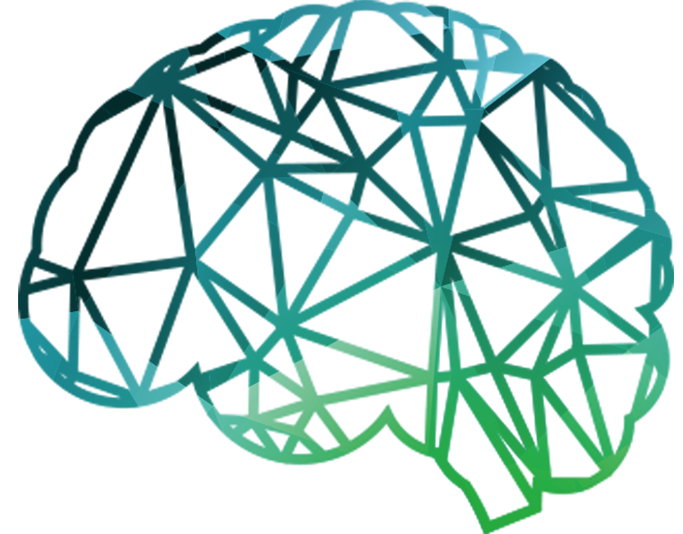
How Sleep Disturbances Affect Mood
Have you ever been more irritable after a poor night’s sleep? If you constantly have interrupted sleep, such as after having a baby, or with shift work, it can eventually lead to depression. So how do we first of all, recognise when it is a problem and what do we do about it? These were some of the questions I asked Katerina.
Some time ago, I had the pleasure of interviewing Sleep Psychologist, Dr. Katerina Nikolakopoulou. We spoke about the effects that poor, or interrupted sleep, can have on your concentration levels, your mood and overall energy levels.
Interview on Insomnia and How it Influences Mood
Joyce asks about different types of sleep disturbance…
Sometimes, we wake up feeling tired or find it difficult to get through the day. We may feel that we haven’t gotten enough sleep. How do we know when it has become a problem? Could you describe what a sleep disturbance is and how to recognise it?
Katerina’s response:
Sleep disturbances can take many different forms:
- Not feeling rested in the morning
- Not being able to stay asleep, waking up many times during the night or very early in the morning
- Some lay in bed awake for hours, not being able to actually fall asleep, despite feeling exhausted
People always know when they have a sleeping problem. They are tired, feel they do not sleep well and have problems with everyday activities. A good indication of been sleep deprived is daytime fatigue and sleepiness.
Joyce asks…
What does healthy sleep look like? How many hours should we get and can you get too much sleep?
Katerina’s response:
The ‘amount’ of sleep one may needs is very personal and has to do with age as well. A child (6-13) needs, on average 9-11 hours of sleep on the other hand an adult above 25 needs, on average, 7-9 hours. We need to keep in mind that the key word here is ‘average’, meaning that there can be many people that need much less or much more sleep than the average.
Yes, it is possible to get too much sleep! It can usually be a sign of our body telling us something is wrong, for example that we have a virus or an issue with our thyroid. Sometimes it is helpful to sleep more as it allows the body to fight a flu or infection.
If someone sleeps more hours that they used to, then it would be a good idea to check it out with a professional. It can be due to a vitamin deficiency or even because of psychological disturbances like depression. A proper evaluation from a trained professional can reveal the underlying problem and help the person in question take the appropriate action. The sooner we take action the better!
Joyce asks…
What might cause disturbed sleeping patterns?
Katerina’s response…
Sleep disturbances can arise because of physiological and/or psychological problems. Sometimes a person just goes through a difficult period with a lot of stress and maybe he/she feels more alert or cannot get enough sleep because they need to work or study a lot. That is normal and can be experienced by anyone.
Many times though, sleeping difficulties can be an early sign of depression or anxiety disorder and it is therefore important to take action in order to prevent developing further health issues.
Joyce asks about our long-term health…
What affect can this have on the body, both short and long-term?
Katerina’s response:
Sleep disturbances have been shown to have adverse effects for both mind and body. Research has shown that people with chronic sleep disorders may be more susceptible to illnesses, may feel more anxious and depressed during the day and face cognitive difficulties like poor concentration. Therefore, it is important to seek help early on.
However, we should also keep in mind that the brain and the body have both great potential and the ability to recover from almost anything as long as action is taken.
Joyce asks…
Is it possible to catch up on sleep or is that a misnomer?
Katerina’s response:
Trying to catch up on sleep by sleeping until late or for long periods during the day is actually not a good idea. This can disturb our biological cycle of sleep (circadian rhythm) and contribute to more sleeping problems.
If you have a bad night sleep, it is better to get out of bed and try to follow your normal routine. Make a realistic schedule, accept that you are not going to be at your best and try doing some light exercise and eat light meals. Also make sure to stay hydrated.
In that way and by keeping healthy sleeping/waking habits, your brain will be able to ‘catch up’ on sleep in the long term.
Top 5 tips for good sleep
Joyce asks…
What are your top tips for getting a good night’s sleep that go beyond sleeping in a dark, quiet and cool room?
Katerina’s response:
I have many! A combination of things that we do during the day can affect how we sleep at night. Actually what we do during the day is more important for sleep than what we do at night.
-
Be active!
It is important to be active in the morning. Some exercise during the day can give the boost that our biological clock needs to function properly. Intense exercise during the early hours of the day can help our brain release hormones, chemicals known to be essential for feeling happier and relaxed during the day. Light exercise, like yoga, in the evening can help us give the attention our body needs to relax.
-
Use dimmer lights at night.
Do not watch TV or use screens in the evening hours and especially 1-2 hours before sleep. Instead try reading a book, listening to music, doing some light yoga or finding alternative activities that you may like.
-
Take a warm shower 30 to 60 minutes before going to bed,
as it can help the body cool down easier before sleep which will give a signal to our biological clock that is time to relax and fall asleep.
-
Do not eat heavy meals close to bedtime.
The body is not meant to digest while sleeping and eating something heavy will make you stay awake longer.
-
Express yourself, relax, and be mindful!
Training the brain to relax and be in the moment activates our default (relaxation) network in our brains. The more we train it, the more it will be able to achieve relaxation when it is needed, like during the night. Some breathing exercises in combination with giving attention to positive aspects of life and to your emotions can be the start for a more relaxed body and mind.
Joyce asks…
What kind of professional help do you provide to poor sleepers and what other options should our readers explore?
Katerina’s response:
As a psychologist with a strong background in brain research and neuropsychology, my approach is based on brain functionality and the individual needs of the client. I provide people with sufficient tools and knowledge about sleep and themselves in order to overcome their difficulties. To do that I follow a specific protocol characterised by different components:
- Psychoeducation
- Evaluation
- Therapy plan
- Psychoeducation: I explain how sleep rhythms are regulated in the brain and why different external or internal processes, like light or anxiety, can affect sleep quality.
- Evaluation: An evaluation of your sleeping/waking rhythm is done via actigraphy, which is a method of monitoring human rest/activity cycles and a variety of questionnaires. Then a personalised therapy plan can be created in collaboration with you.
- Therapy plan: A plan includes changing habits related to your daily and evening activities. This includes sleep hygiene, light therapy, and chronotherapy. Subsequent sessions include cognitive reprocessing of any beliefs that may be influencing stress and alertness levels, as well as ways to manage and relieve your stress.
In the case of more complex sleep disturbances, I may recommend a full sleep study. For this purpose, I collaborate with the Boerhaave sleep clinic and the neurologist/somnologist, Dr Hans Hamburger.
 This interview was with Katerina Nikolakopoulou, sleep psychologist from Sleep Counseling in Amsterdam.
This interview was with Katerina Nikolakopoulou, sleep psychologist from Sleep Counseling in Amsterdam.
Katerina is specialised in sleep disturbances with a BSc in Psychology and a MSc in Cognitive Neuropsychology. She runs a private practice, gives workshops on sleep & psychology, conducts research in collaboration with sleep clinics in Amsterdam and is a Sleep Psychology lecturer at the Webster University of Leiden.




Comment
[…] not usually just one thing that interferes with sleep. If you haven’t read it yet, see the interview I did with Sleep Psychologist, Katerine Nikolakodoulou, a few weeks ago. She talks about certain […]